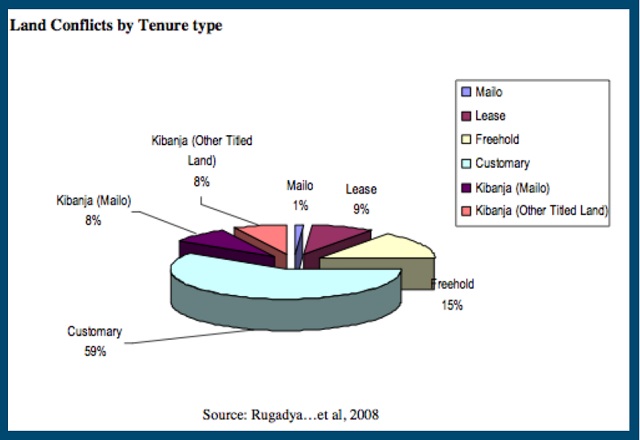
Ugandans and land
Uganda is largely an agrarian society with close to 85% of Uganda’s rural population depending on it. In many families, it is the single most important determinant of livelihood and wellbeing.
But rapid population growth combined with limited opportunities for non-agricultural employment as well as the ever rising non-agricultural demand for land has caused the value of land to appreciate resulting in higher competition for the available land.
Onesmus Mugyenyi, the Deputy Executive Director of the Advocates Coalition for Development and Environment (ACODE), a Kampala-based policy think tank, told The Independent on Aug.04 that the biggest challenge Uganda has faced is mixing politics with land issues.
“There is no doubt that this country has complicated land tenure systems. And Mailo land is one of those complicated systems because it creates overlapping land rights.”
However, Mugyenyi noted that most of the evictions that have created a lot of problems are not a result of Mailo, per se.
But the problem is not just politics, Mugyenyi told The Independent. He says corruption which is perpetuated by the nature of Uganda’s politics in the country is also a big issue.
They (evictions) are a result of people who are grabbing land and they want to sell this land to investors. They (land grabbers) connive with the land offices, get these titles fraudulently and use these titles to do the evictions.
“If there is any area where we have a lot of fraud, it is in these land offices where they have created fake titles. So, that has created a lot of problems; it has brought about fighting, evictions and failed evictions.”
In his 2017 report titled: “Land Injustice, Impunity and State of Collapse in Uganda: Causes, Consequences and Correctives,” Prof Joel Oloka-Onyango says Uganda has a deep land crisis.
Oloka argues that the land conflicts “have been exacerbated by the failure of post-independence governments to comprehensively pursue land reform measures which are equitable, rational and sustainable.”
As a result, land has often been a source of tension as communities fight to protect their rights, individuals seeks to increase their wealth and population growth puts more pressure on this limited resource.
“Land has become an intricate component of the networks of patronage, nepotism and neo-patrimonial governance which have been instituted since 1986.”
This crisis, Oloka said, is intricately connected to the structures and methods of governance introduced with the advent to power of the National Resistance Movement government.
Oloka argues that while the manifestations of the land crisis are evident in a policy and legal regime which is largely dysfunctional, the roots of the problem lie in the complete lack of transparency around the acquisition of wealth by senior government/public officials, the failure to institute robust mechanism for ensuring accountability over the acquisition of wealth and the absence of effective sanctions for those who take advantage of or simply abuse their positions of authority.
“The system is rotten and the rot begins at the top; the rot permeates not only the mechanism in place governing the acquisition of public land, it extends into the arena of the administration of private land, hence, the major problems afflicting the system of land registration in the country.”
Tumushabe noted that having been in power for 35 years, “President Museveni, even if he had the will to do so, he has no capacity to fix the land question.”
“The mechanisms for resolving land disputes have broken down. The citizens of Uganda have lost confidence and trust in institutions of government. So instead of crying about Mailo land, Museveni needs to rebuild this trust but, can he do it?
“That appears to be a tall order for him,” Tumushabe told The Independent, “The regime is in survival mode and Museveni cannot do it without jeopardizing his grip on power.”
****
This story was supported by funding from the African Centre for Media Excellence’s (ACME) Enhanced Media Reporting for Civic Engagement programme.
 The Independent Uganda: You get the Truth we Pay the Price
The Independent Uganda: You get the Truth we Pay the Price


